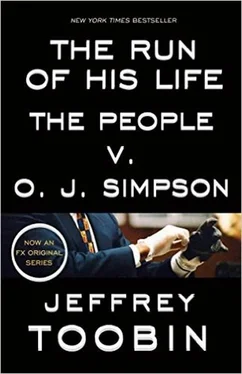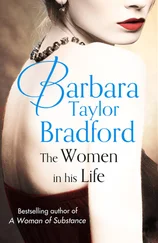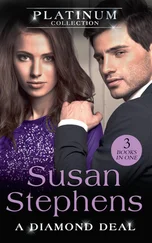Indeed, though Nicole Brown Simpson and Ronald Goldman were the first and most important casualties of this case, they were not the only ones. There was Simpson’s family, those decent and loyal women in yellow who endured this long trial for a man they loved, and of course those two children, who would grow up without a mother. There were Simpson’s friends, many of whom came to realize how blind they had been to O.J.’s narcissism and brutality. There were the peripheral figures, like Shipp and Huizenga, who degraded themselves on the altar of celebrity. (Shipp, at least, came to realize what he had done.) And there was even the public at large, whose passions and biases were inflamed by the events Simpson had set in motion. None of this mattered to O.J. Simpson, because, as he had done his entire life, he cared only about himself.
Huizenga and Heidstra gave the prosecution a brief but undeniable lift. So the defense lawyers retreated to the safe harbor they sought whenever the evidence turned against them: race.
Shortly after three in the afternoon on July 7-the day after the prosecution rested its case-a secretary in Johnnie Cochran’s office said she had a phone call to patch through to Pat McKenna’s cubicle. The caller, the secretary said, did not want to give his name.
McKenna, as the lead private investigator for the defense, rarely came to the courthouse. Instead, he worked out of Cochran’s office, chasing down witnesses, following up leads, and handling the endless number of tipsters who called with purported information about the case. McKenna’s notes from most of these telephone calls wound up in a thick manila folder that bore the heading LOONIES.
The caller on this day sounded saner than most of the others, and he offered unusually specific information. He said he was a lawyer from San Francisco and he had a client who had a friend named Laura. The caller said that Laura had in her possession about a dozen audiotapes of Mark Fuhrman talking about his police work. Scribbling as the caller talked, McKenna noted what the caller said Fuhrman had discussed on the tapes:
– Plant Evidence
– Get Niggers
– So. Africa-Niggers-Apartheid
The caller gave McKenna a phone number for Laura with a 910 area code-North Carolina. McKenna, as he sometimes did with the more credible tipsters, gave this one a code name, in case he wanted to get back in touch. “You’re Brian,” McKenna told the voice on the phone.
McKenna put down the phone with “Brian” and dialed Laura. A man answered; he said Laura was out but would be returning in about fifteen minutes. McKenna left his name and number-but not his affiliation-and Laura called him back in about thirty minutes.
“This is Laura Hart McKinny,” she said.
“I’m a private investigator working for O.J. Simpson,” McKenna told her, with an edge of nervous pleading in his voice. “We really believe our client is innocent, and we understand you have some tapes of Mark Fuhrman that we think could help us very much.” Polite but noncommittal, McKinny told McKenna her lawyer would give him a call. Fifteen minutes later, a lawyer named Matthew Schwartz, who was based in Los Angeles, rang McKenna. Schwartz confirmed that the tapes existed and that they were authentic. He said that McKinny had interviewed Fuhrman for a screenwriting project. Schwartz said he thought if the defense subpoenaed the tapes, they could probably work out a way for them to be turned over.
At 5:08 P.M., less than two hours after he first heard of the tapes, McKenna faxed Schwartz a letter formally requesting them. It was only then that McKenna realized that, as he had been talking on the phone, he had traced and retraced the same words from his original notes:
– Plant Evidence
– Get Niggers

In the struggle over the Fuhrman tapes, the last great drama of the Simpson trial, it was as if the id of the case had been unleashed. All the smoldering passion, anger, and resentment shot directly to the surface. The Fuhrman tapes gave the defense the opportunity it had sought since the day of the murders to change the subject from the culpability of its client to the sins of the LAPD. But this time there was a twist. Of course, Cochran and company went about their work of exploiting racial tensions with their usual shady cynicism, but the tapes controversy gave the defense something it never had in earlier battles: the truth. About Mark Fuhrman’s character, the defense was right and the prosecution wrong. The tapes thus forced the prosecutors to confront squarely the cost of their arrogance. Having had full warning about Fuhrman’s twisted soul, Clark had embraced him nonetheless. With McKinny’s tapes, Clark and her colleagues paid the price.
The roots of the final crisis went back more than a decade. Laura Hart McKinny had met Mark Fuhrman on a pleasant late morning in February 1985, at an outdoor café in Westwood. McKinny was sipping a drink and typing on a laptop computer, a novelty in those days, and Fuhrman came over to inquire about it. The two of them, both good-looking and in their mid-thirties, sat down to chat. Fuhrman asked what she was working on. She said it was a screenplay about female police officers. Funny, he said. He was an LAPD officer himself.
In the early 1980s, under political and legal pressure, the LAPD had dramatically expanded the number of women on the force. McKinny said she was writing about the stresses these women faced. Fuhrman smiled. He could be a charming man, especially around an attractive woman, so he decided to taunt McKinny a little bit and, at the same time, flirt with her. He said he didn’t think women belonged as police officers, that they couldn’t handle the job, and that the recruitment efforts for them were going to lead to disaster. In fact, Fuhrman told her, he belonged to a clandestine organization within the LAPD known as Men Against Women, or MAW, which was dedicated to resisting the encroachment of women onto this traditionally male turf. McKinny immediately recognized Fuhrman as a potential resource-an insider who could give her the perspective of the hostile, sexist LAPD traditionalist. Perhaps, they agreed that first day, they could talk some more about the subject.
That first meeting set the tone for a relationship that would last almost a decade. Their story was, in its way, a paradigmatic tale of modern Los Angeles, a city with an unproduced screenplay in many a desk drawer. Fuhrman and McKinny met again on April 2, 1985, and this time she brought her tape recorder so she could preserve his sexist (and, secondarily, racist) rants. They agreed that McKinny would give Fuhrman a $10,000 fee as a technical consultant if the movie was ever produced. Because McKinny was obviously working on a fictional screenplay, she and Fuhrman never really dealt with the question of whether everything he told her-all of his opinions, all of his war stories-was literally true. He was obviously drawing on his own experiences, but he was also trying to jazz them up for her cinematic purposes. There was a personal dimension to their relationship as well. A dreamy 1960s throwback with a taste for liberal politics and natural foods, McKinny was a perfect foil for the right-wing Fuhrman. He delighted in shocking her with his preening, even exaggerated, bigoted braggadocio.
McKinny worked hard. She would carefully transcribe the text of their meetings, send copies to Fuhrman, and then arrive at their next encounter with a list of new questions. Ultimately, they had twelve sessions together, yielding about twelve hours of interviews. McKinny also went on drive-arounds with female police officers, and interviewed them as well. According to a producer who knew her, “Laura did everything a writer was supposed to do. She really got to know her subject, really did her homework. There was just one problem: She didn’t write a very good screenplay.”
Читать дальше













